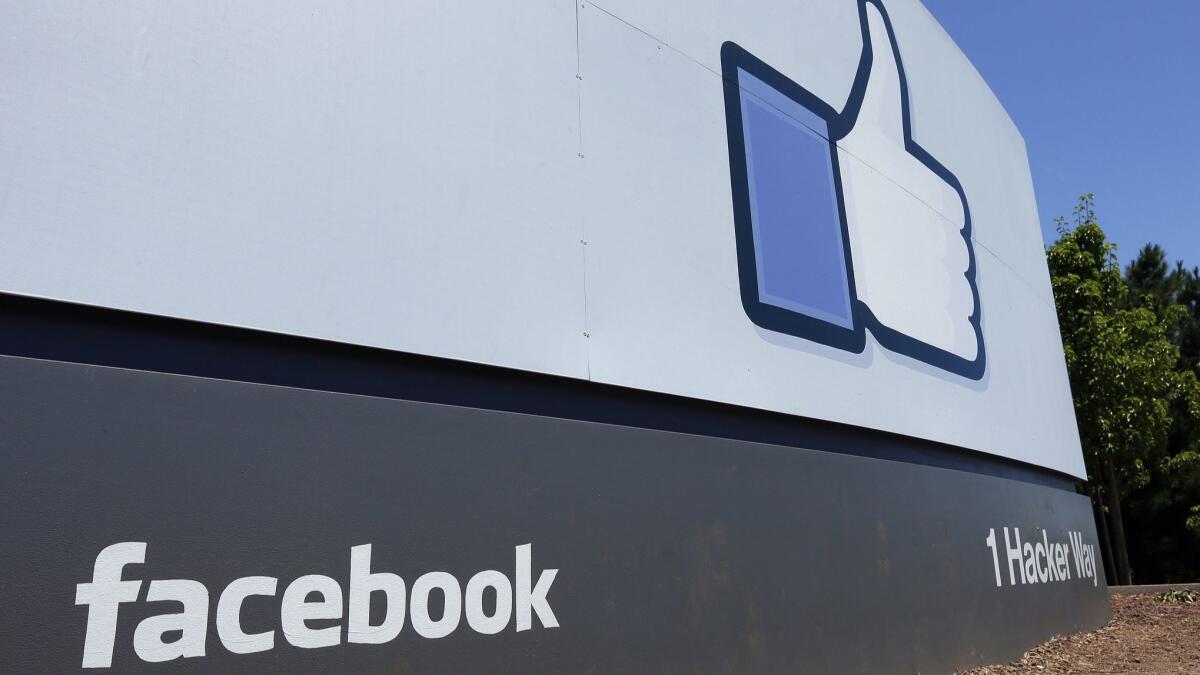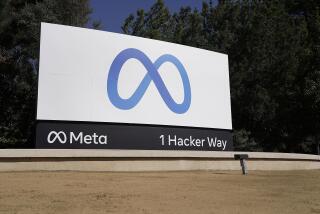Facebook says it removed a record 2.2 billion fake accounts in the first quarter

- Share via
Facebook Inc. said it removed 2.2 billion fake accounts in the first quarter, a record that shows how the company is battling an avalanche of bad actors trying to undermine the authenticity of the world’s largest social media network.
The number of fake accounts removed was nearly four times higher than the first quarter a year ago and more than twice the roughly 1 billion fake accounts disabled in the final quarter of 2018. The vast majority are removed within minutes of being created, the company said, so they’re not counted in Facebook’s closely watched monthly and daily active user metrics.
Facebook also shared a new metric in Thursday’s report: the number of posts removed that were promoting or engaging in drug and firearm sales. Facebook pulled more than 1.5 million posts from these categories in the first three months of this year.
The report is a striking reminder of the scale at which Facebook operates — and the size of its problems. The company has been under constant criticism about its content policies and efforts to detect fake accounts since the 2016 U.S. presidential election, when Russia used the social network to try to sway voters.
Facebook has promised repeatedly to be better at detecting and removing posts that violate its policies, and has pledged that artificial intelligence programs would be at the center of those efforts. Facebook says its operations are simply too big for it to monitor everything with humans alone.
The company on Thursday released its third transparency report, a twice-yearly document that outlines Facebook’s efforts to remove posts and accounts that violate its policies. The company said it’s getting better at finding and removing other troubling content like hate speech in the process.
Facebook’s artificial intelligence algorithms work well for some issues, like graphic and violent content. Facebook detects almost 97% of all graphic and violent posts it removes before a user reports them to the company, it said. But it is far from perfect. Facebook still can’t detect graphic or violent content in live videos, for example, a blind spot that allowed a shooter to broadcast his killing rampage live at a New Zealand mosque earlier this year.
The software also hasn’t worked as well for more nuanced categories, like hate speech, where context around user relationships and language can be a big factor.
Still, Facebook says it’s getting better. Over the past six months, 65% of the posts Facebook removed for pushing hate speech were automatically detected, it said. A year ago, that number was just 38%.
More to Read
Inside the business of entertainment
The Wide Shot brings you news, analysis and insights on everything from streaming wars to production — and what it all means for the future.
You may occasionally receive promotional content from the Los Angeles Times.










